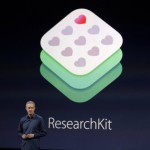 Recently saw the launch of the open source project to produce a new, and better, mobile personal assistant. The project, called Sirius was launched out of the University of Michigan and already has a number of unique features over mainstream rivals such as Apple’s Siri and Microsoft’s Cortana.
Recently saw the launch of the open source project to produce a new, and better, mobile personal assistant. The project, called Sirius was launched out of the University of Michigan and already has a number of unique features over mainstream rivals such as Apple’s Siri and Microsoft’s Cortana.
Of course, Apple aren’t particularly renowned for their open source credentials, so it was with some surprise that they recently announced the launch of ResearchKit, which aims to make it much easier for researchers to create scientific apps for Apple devices.
The software is open source, so any researchers with an interest in developing medical diagnosis apps will be able to customize and share their creations with one another, much in the way developers on Sirius will be able to.
A number of apps were shown off at the launch of the event, including a Parkinson’s related project from the Michael J. Fox Foundation. They are keen advocates of the platform, which they hope will streamline how consent is gained for scientific research.
There is also a diabetes app called GlucoSuccess, which monitors your physical activity, whilst also helping people with their dietary intake and glucose values.
Thus far, the project appears to have been a resounding success. Early reports suggest that users are signing up to projects in their droves. For instance, a cardiovascular trial conducted by Stanford revealed 11,000 new volunteers within a day of launching on ResearchKit.
That kind of growth would ordinarily take years (and a lot of money) to achieve. The hope is that this influx of willing volunteers will greatly enhance the quality of any findings that emerge from the process.
Of course, the challenge will be to ensure that the kind of people that sign-up to any projects are the right kind of candidate to support the various projects being undertaken.
This is especially the case as iPhone users are seldom a representative cross section of society. Such non-representation is hardly a new problem with academic research however. Indeed, you only have to think of the number of studies whose guinea pigs are university students to appreciate the scale of that particular problem.
The hope has to be that such is the scale and reach of the iPhone userbase that such fears will be diluted somewhat, and even if they are not truly representative of society as a whole, they may still be more representative than traditional trials.
Despite these fears, the platform promises to make research a much more two-way process by offering participants valuable insights into their condition.
It seems only a matter of time before patients arrive at their local doctor complete with a raft of data recorded via their smartphone.
Whilst this will no doubt produce a number of teething problems, in time I think this will be a very useful and valuable addition to each of our medical records.
I must say I was really surprised by this announcement. Happy, yet surprised nonetheless.
Thanks for this information, really useful.
It's interesting but they have to be really careful of garbage in, garbage out.
Yes, the quality of the sameple they attract will be hugely important to the reliability of the trials. It'll be interesting to see how they manage it.